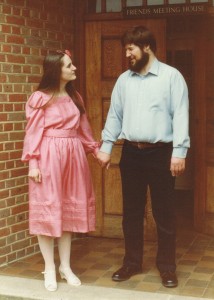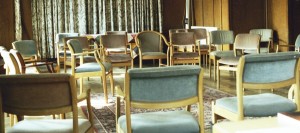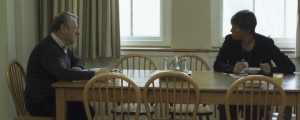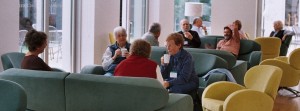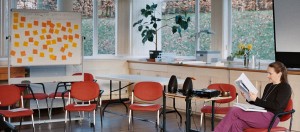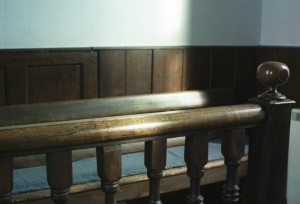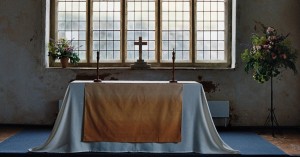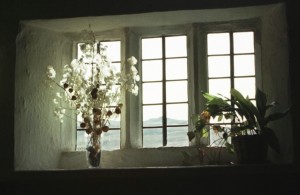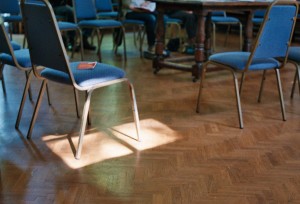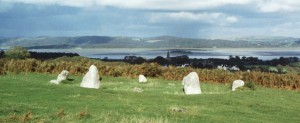Nontheist Friends include in their number atheists (those who claim that there is no God at all), agnostics (those who claim that they do not know whether or not there is a God, even than it is not possible to know, and may also ask ‘does it matter?’); humanists (who may claim that there is no God beyond what human beings have created or imagined, and may believe (humanists I’ve met seem happier with the word ‘believe’ than many Quakers are) that the only ‘Spirit’ that exists is the human spirit); those who believe that God only exists as the Inner Light within each human being and not in any external form; and others who reject ‘traditional’ images of God.
So am I a nontheist? If you’ve read the other posts I’ve made in this Quaker alphabet, you may well say ‘no’. Personally, I’m not sure.
A few years ago, a Buddhist friend, in an evening discussion group, succeeded in convincing me that God does not exist. His arguments were clear, and logically irrefutable. I had to admit that I agreed with him. Early next morning after a few sleepless hours, I decided that if God did not exist, I would have to invent God, because I can’t manage without. Either the God of my understanding exists, or the God of my understanding is a human invention (possibly mine, possibly shared). It seems to me that if I am wrong about the existence of God it doesn’t much matter, but if there is a God it does matter.
Of course, a lot hinges on what I mean by the word ‘God’. I do not mean an old man sitting on a cloud dishing out earthquakes, thunderbolts, rain, sundry judgements and so on. I do not mean a larger-than-life father figure. I do not mean a person or being at all. I mean a force, a creative energy, that permeates the material world, the Presence of which we can be aware of, if we pay attention. I perceive that energy to be within, beyond and around each of us. As clerk at a Quaker Meeting for Worship for Business I am happy with the traditional explanation that the meeting is seeking the will of God, but I understand this to mean that we are seeking to align ourselves with the purposes of Love in the universe. When we are aligned in this way we feel a rightness, as we may feel when we dance in time to music, rather than being slightly off the beat.
So, I admit that ‘God’ may be a purely human construct; I am sure that we can not be certain about the existence or otherwise of ‘God’; I have rejected the ‘traditional’ images of God; I agree with the logical arguments against the existence of God. Hence, it can be deduced that I am a nontheist.
But, I still claim to believe in God, and I use that word because I don’t have a better one. Why do I believe? A – because I need to, and B – because it is the only explanation that satisfies me for the experiences I have had of the Presence, of guidance, of being drawn by the Spirit to follow and to trust.

